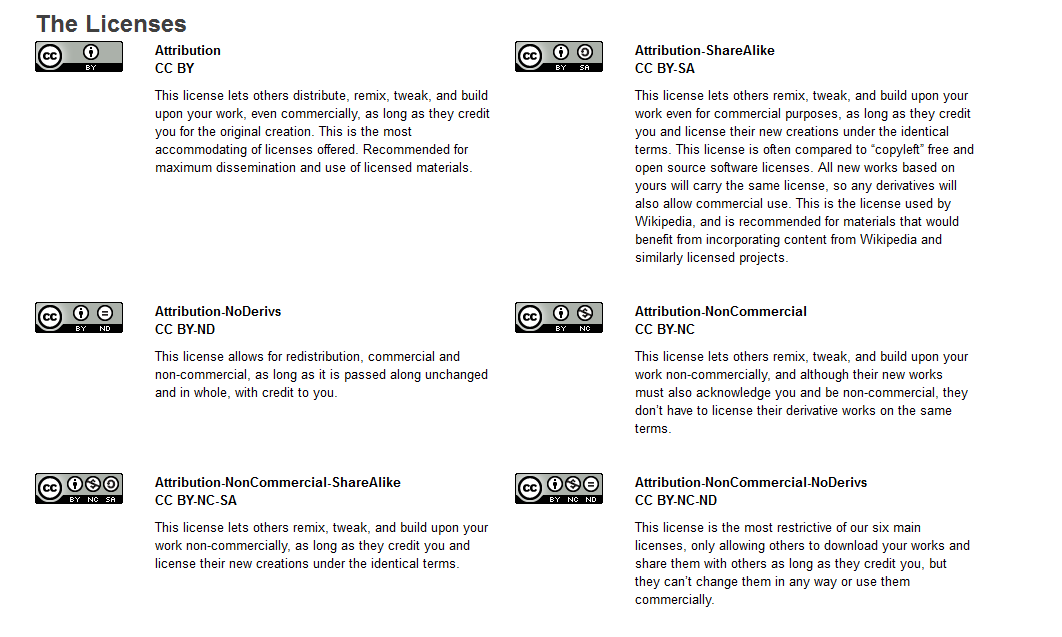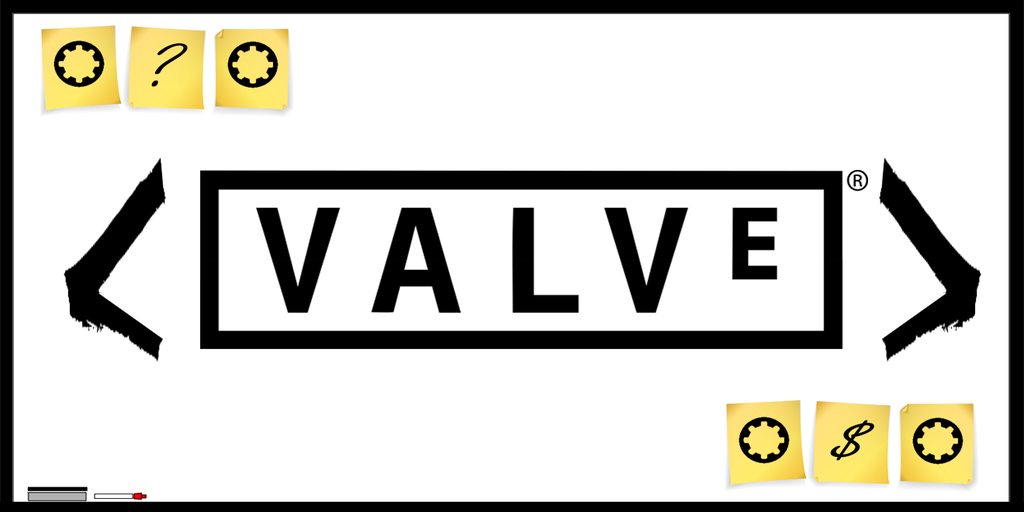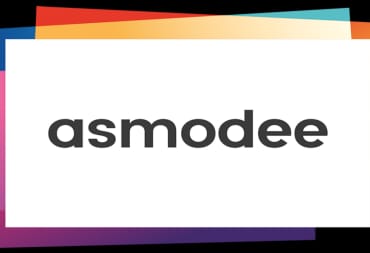It wasn’t that long ago that Valve introduced paid mods on Steam in partnership with Bethesda. That led to 4 days of fast paced excitement as everyone reacted to the new paid mod system that debuted with Skyrim.
The fan backlash was loud and overwhelming against the program, from many (like our own Xavier Mendel) not being a fan of paid mods at all, to others who had problems with the implementation. There were, because of numerous issues, many misconceptions going around as people looked at the surface without looking into it more.
The backlash led to Valve taking the program down after only 4 days. Now that emotions have cooled, it’s time to examine some of the big issues with the launch, why it went wrong, and some things Valve could consider if and when it relaunches the program.
Failure to do Spadework and Explanations
This is nothing new from Valve, as they generally prefer to just reveal new things without any notice. Sometimes it works great for them; in this case, it really backfired.Mods are a pretty big thing to PC Gamers as they help differentiate PC gaming from other devices with its flexibility and there is a mystique over the modding community in general. While at times gamers have shown a willingness to donate to modders - one Cities: Skylines modder makes over $600 per building on patreon - the free nature of mods means the support people are willing to give is limited and people tend to speak a lot about how modding should just be a hobby. Dropping in something that disrupts the system without any warning was guaranteed in and of itself to generate backlash, but there’s more here too.
By failing to do the spadework, it meant Valve and Bethesda were entirely dependent on people seeing and understanding the details, surrendering control of the message. That meant when a few misconceptions, like Valve taking 75%, got spread around, there was no official story out there contradicting the misinformation or informing people on how it worked or why paid mods arrived that way. The lack of official statement created an uphill battle for Valve and Bethesda to get out the correct information, as by the time they started doing message control, the stories had already gotten out of hand.
As a result of not doing the spadework there was a lot of miscommunication surrounding the release of the Paid Mods system. As mentioned above, one prevalent rumor was that Valve was taking 75% of the cut, which wasn’t true; it was only mentioned in the terms that Bethesda, the game creator, decided the amount and even then that didn't explain the cuts beyond 25 to modder, 75 to be split, leading to a lot of confusion.
Bethesda spoke about the price cuts and compared it to fan-fiction on Amazon, and I think there are a few key points to remember here. First of all, fan fiction doesn't require the reader or the creator to have bought the sources everywhere, games do. Second, the comparisons on the other games on Steam such as DOTA 2, and TF2, are free to play multiplayer games. While Counter Strike: Global Offensive is $15, the key is that its cosmetics are online and it isn't a single player AAA game like Skyrim. The explanation was also several days late, after people had become entrenched in opinions, to the point that facts didn't really matter. Also, unlike those splits, this one is open to the public to see; in plain view they see the creator only gets 25%, so it’s front and center.
Lets go back to the Amazon fan-fiction comparison for a moment. Bethesda mentions that as a comparison and says the Kindle Worlds program offers 15-25%, with that being IP only, not tools. There are a few issues there to some extent. The first and largest being... the Amazon Worlds program range is actually not 15-25%. It is in actuality 8-35% depending on various factors. Quoting their agreement...
E-Book with 10,000 or more words: 35% of Net Revenue E-Book with fewer than 10,000 words: 20% of Net Revenue Paperback: 8% of Net Revenue Hardcover: 10% of Net Revenue Audio: 10% of Net Revenue Translations in E-Book format: 25% of Net Revenue Third Party Sublicensed Rights: 35% of Net Revenue after deducting applicable foreign agent commissions and related feesNow, these royalties are, like the paid mods, post some costs. That is after customer returns, unsold stock, and half of the digital delivery fee (which is around 15 cents/MB so 7.5 cents/MB removed) but notably excluding taxes and shipping costs. Valve's workshop agreement specifically states that any taxes it is responsible for will be removed from the overall revenue before the split is decided. Additionally, Amazon adds value by doing curating, thus doing some quality control, copy-editing for the works, selling it via their store, and even promoting it. Those are things in some cases that Valve doesl promotion on the front page, handling payments and other business aspects, but not Bethesda.
How To Fix It: This one is clear how to fix: do some of the ground game in PR that Valve so dearly hates. Essentially do a full out media blitz; get out and do some interviews, be very clear and explain how things work, and be on message and point. Also when making comparisons, you should do your due diligence and make sure they are accurate.
About that Revenue Split
Alright, this is one of the big misunderstandings that have come out and one of the focal points of the miscommunication that happened. People saw that modders only took home 25% and many were outraged, not realizing some key parts of how it works.As mentioned above, many possible comparisons do put it in that range. I mentioned a few reasons why that might not fully work but let’s pause and look at why the idea that the Modder should take all or almost all are pretty faulty as well.
Bethesda puts a lot of time and work into building the games; they take years and millions of dollars to create. A significant portion of that is included in creating the tools for people to build using the creation engine, as Bethesda has made modding support a focus for years. Additionally, any mod makes heavy use of assets and work Bethesda already did; it’s basically serving as the base work and assets that the person can draw upon without any other work. Another part is the Intellectual Property that Bethesda is letting you use, as you get to use their name and marketing as a platform to sell the mod.
Valve also does some work here too. Beyond the hosting of it, and providing a platform for which your mod can be found, they also built the workshop and were basically providing front page advertising. Also of note, Valve’s 30% was cut into with the service providers, as according to Nexus Mods (note: Nexus Mods states Valve took 35% and Bethesda 40%, which is contradicted by Bethesda, and I think that was a mistake by them), the service providers would split 5% of Valve’s share if any were selected.
I do think the 45-30-25 share is a bit lopsided, especially given how much some of the mods may do. A total conversion mod is a huge amount of work, but it is important to note that, again, it’s built off the tools, assets, and IP that Bethesda has given and put onto Valve’s platform.
How To Fix It: Be more open about matters people may not consider typically and probably change some of the numbers for optics and to help provide support. Something like 35 Beth/35 Modder/30 Valve provides equal value to the current content creator and the original game creator.
Business Realities
Expanding a bit on that, we’ll take a look at some of the business of gaming that has a direct impact on the paid mod situation. The cost of games continues to go up, especially at the AAA level, where even if you keep everything the same price, inflation continues to raise the amount you need to spend. At the same time, the amount you can sell a game for on launch is flat; $60 seems to be the most companies are willing to attempt to charge.Traditionally, games have less revenue streams than other forms of entertainment media such as movies. A movie when it comes out has its big theatrical release, and inside that may have product placement, and will also have various merchandising deals. Then, months later it will have its DVD release where it makes money on sales (and previously rentals), sometimes it will have a second one with a ‘special edition’ as well. They also get TV deals and streaming ones, often with regional specific funds. Through this, the amount of additional work from creative types is basically negligible after the film is made.
Games usually have less. You launch the game, and have your launch week sales, the equivalent of a movie's theatrical release in the industry. For many games they will get a Game of the Year or Director's Cut launch - a bit like a movie's DVD Director's Cut release in terms of revenue stream and income. Expansion Packs don't have as much a direct comparison, but provide a solid revenue stream at the cost of requiring a significant investment in time and effort to put out, if less than a full sequel in most cases. Games also can be ported to different devices post-launch giving them potentially a second smaller launch of sorts, though the cost and effort needed to do it compared to things like a DVD release lessen the value of this stream. Merchandising for games has always been around and has taken an increase especially with the rise of toy-centric games and products like the amiibos, Disney Infinity, and Skylanders. Product Placement and Streaming do have some game places but are much less in quantity and quality in most cases. While this seems like a good amount, compared to other mediums it is still less and the costs for games continues to rise in the AAA market.
Some of this is adapting previous mediums business practices of creating something and then moving onto something else - the old school create and move on. With the rising costs of games, companies have been exploring other methods of creating revenue: microtransactions, DLC, bundles, and larger collector’s editions. Some game creators have also come to realize free updates help generate revenue over time, and combined with other practices these have led to games having a longer life period worked on - even single player games have longer periods of active updates than you would see in the past.
That makes paid modding almost certainly an inevitability, as it can provide another revenue stream. Like many other things, it may also let people continue to work on the game by fixing it with free updates, further prolonging its lifespan.
There are several possible impacts that this might have on the industry however, beyond just opening up new revenue streams. The first is that it may cause an increase in the amount of programmers who are dissatisfied with their situation, because they see other people making lots of money off of the code they built. There are a lot of ways this could go (with the worse being less companies allowing modding and making it harder to mod things) but the most likely one would be an increase in wages for software engineers and/or another wave of them going independent. Traditionally when programmers feel they can make most of their wages working independently with creative freedom they prefer to take that option, thus companies have often responded with a raise to keep them happy and in house.
It would also create another safety net for independent developers, as they could create mods for games and create a revenue stream to support themselves while building a reputation. While some might go to it exclusively, others may do it as a way to support themselves while they work on their larger products or to keep out of the red.
A side effect of that might be a decrease in mobile games that get created. While mobile companies and developers are unlikely to move away because of this, companies or developers who create mobile games to keep the lights on until they can make their big game might make the move. Many need revenue streams to keep their companies afloat and have the funds to work on the bigger projects that they want. Paid modding may allow solo or small developers to instead put that time, if they wish, into creating mods.
The donation button suggestion is another thing that needs to be addressed in terms of business realities. This is a common suggestion that people say they’ll use; however, past evidence shows they haven’t. The Nexus has had a donation button option for a while, and it doesn’t see much use for the modders there. Additionally, humans tend to take the path of least resistance and a donation button requires you to take several steps of additional effort to use compared to just downloading.
A potential compromise could be a pay what you want system. With some implementation, one could create it so that people would have to enter the zero value if it was set at a minimum of zero. It would also allow setting it at higher numbers for larger mods and let people put in the additional amount they feel is appropriate. While this still creates potentially less effort required on the free choice, it is closer in comparison than before. If a suggested amount is put in there perhaps, other than 0.00, it would create a bit more work there to change that from the 'suggested' amount and the minimum could be in some cases set higher than 0.00, though that would need to be shown.
Relying on Community Filtering, but no Curating
Getting back to more specific points with the roll-out, the lack of curating and just some community-aided filtering was another flaw. While Valve has a record of over relying on the community (see Steam Greenlight), they also have done curation for their own game’s user generated content which weeds out the worst. With the amount of mods likely to come in this and other games, it would be unlikely for them to be able to provide that depth of coverage that they provide to their games to others.However, whether Valve would have done even user curating like in the Chivalry: Medieval Warfare Workshop is tough to say because of what we have found were Bethesda’s terms on it:
“In our early discussions regarding Workshop with Valve, they presented data showing the effect paid user content has had on their games, their players, and their modders. All of it hugely positive. They showed, quite clearly, that allowing content creators to make money increased the quality and choice that players had. They asked if we would consider doing the same.Bethesda’s one demand here shows I think a lack of recognition of the difference between a business transaction and a free hobby one. When it’s free, if it breaks or something goes wrong, or a bad mod is released, it doesn’t really reflect that much on the system, game or company, and people can go on with their lives easily enough. Once it’s paid, that money is trapped in Steam’s system (largely for good reasons, such as to prevent fraud and counterfeiting through Steam) and the whole situation and transactions nature has changed, even with some refunds available.This was in 2012 and we had many questions, but only one demand. It had to be open, not curated like the current models. At every step along the way with mods, we have had many opportunities to step in and control things, and decided not to. We wanted to let our players decide what is good, bad, right, and wrong. We will not pass judgment on what they do. We’re even careful about highlighting a modder on this blog for that very reason.”
The filtering process that was put in place was that after Valve got the mod, they put it up ‘under review’ for a period of one week. There, in addition to Valve looking at it, users could report issues with the mod on the surface. There were several issues with this, as it wasn’t possible to judge the mods quality beyond what was shown as nothing would indicate if it was harmful or even did what it claimed, and the process quickly allowed troll mods to flood the ‘under review section.' Even with the limitation of only judging on the surface, it was even more difficult to judge serious mods as you had to go through more drek per submission than even Valve’s Greenlight program.
Valve could have done some very basic curation to help quiet down the situation a lot. First, a basic Intellectual Property check to remove their liability and to lessen the chances of people losing access to purchased property later. Second, a check to make sure the mod works to some degree and that it’s not malicious. Third, a simple troll check; I’m pretty sure that one apple added, or that rubbish bin mod, can be written off as being actively damaging to the reputation of the store rather than aiding the community. It does have to be said that Valve does try to avoid censorship in general, instead preferring to rely on censuring from the community, a split in the community written on recently by our own Robert Grosso.
Valve should also ensure there is good practice among paid modders. Essentially ensure that people aren’t abusing the privilege of publishing their mod, that they are doing so in a honest manner, and that people aren’t using the free workshop or paid one abusively. Midas Magic, in particular put pop up ads in its free version that came up with about a 4% chance when casting certain spells to buy the paid version, though the modder has since apologized. This obviously, especially at launch, damages the view of how this program would be seen by users and has a deleterious effect on Steam’s reputation.
How To Fix It: As discussed above, provide some basic curating and put in a discovery feature much like there is for other areas on Steam. That would allow people to only see paid mods that might interest them, and it would mean at least the ones that actively harm games are gone.
More on the next page, including a discussion on licenses.
Bad Choice of Starting Mods
Okay, here’s the thing Valve, I know most of the stuff you sell in your games are hats but for other modding communities, a single item skin is not a very valuable commodity. Generally speaking, single or a set of items aren't considered a very complicated or highly desired mod in many communities.This is in part because these games use a lot of different items, have a ton of customization and more built into the game itself. Also, for many of those items, the cool part is being able to show it off online which doesn't apply to a single player game. Additionally, communities like Skyrim’s have huge collections out there already with a lot of excellent looking weapons and armor available.
Seeing a weapon offered for $1 brought to mind the worse of DLC practices to many people, and it felt like paid mods were going to be nickel and diming them. It felt like more of what they face when games like Batman Arkham Knight announce $40 season passes before the game is even launched.
Part of what makes this odd is that there have traditionally been some great mods for The Elder Scrolls series. Mods that take the base and transform the game such as Nehirm for Oblivion, or ones that add whole new questlines. If one is deciding that they must use Skyrim, take advantage of the fact that there is a hue amount of mods there to use and to display the best of the community. Don't use it to force out quick, cheap mods that don't add depth to a game, instead use Paid Mods to celebrate the great works that are there and to promote why paid modding should be a thing by showing off the best of the best at launch.
How to Fix it: This one is another relatively easy fix. Realize that what you put out there is going to create an impression from the get go. You need to have some big mods to show off what paid modding can bring to the community – show off Total Conversions, big overhauls, large collections of arms and armor that make a big difference. Don’t show off a single sword for $1 in an expansive, single player RPG.
Bad Game to Choose
Skyrim was a poor choice to choose to launch this test for numerous reasons. First, it has been out for years and has a large mod base. Go look at it and see how many mods there are. This is a well-developed community both on the workshop and on various modding sites that is used to the process it has. There’s all sorts of Skyrim mods for free and people are used to picking between them without any issues or cost.The second issue is price range; the game was $5 on sale (and can often be found for $5-10 when it is on sale), and there were several mods that cost more than it. These weren't mods that transformed the game – one for example improved water effects. While Wet and Cold is a highly regarded mod, it probably raised questions in the minds of those who didn’t know it, about why a mod for water effects costed more than the game itself.
How To Fix It: Pick a game with a less interdependent mod scene and ideally one that is new. Elder Scrolls VI or Fallout 4 would be good choices, or games that rely less on building on top of mods.
Failure to consider dependencies and Licenses
This one is going to take a little bit to get into. There are several parts and almost everything we've talked to up until now is part of this topic.The 24 hour refund period is workable for people trying out mods; however, it comes with a major issue for other games in the future. What about if the developer launches an update that breaks the mod and the mod author has gone away? Valve’s response was basically ‘ask the modder nicely to fix it’ which doesn't really accomplish anything. There needs to be a better program here especially if it’s implemented for a new game that gives the modder a period to fix it and some way for the user to get some recompense if not.
For Skyrim in particular, there is another big issue: dependencies. While some game’s mods are largely standalone, Skyrim mods are often loaded in large bunches, with interactions and load orders and everything else. Mods also often rely on each other, which causes an issue when you get into people disagreeing about how their mods can be used or how to deal with money when one person is making a profit that uses some of the work that another has done.
Based on what I have seen, I believe Valve basically told people not to worry about it based on their Steam Subscriber Agreement, which includes a portion that I will quote here:
“A. General ProvisionsNow given this is legalese, there are several ways this could be interpreted, but it’s possible Valve interprets operations of Steam to include its ‘affiliates’ selling mods. That would be a broad interpretation, but then in America, companies are people so it wouldn't be a first."User Generated Content" means any content you make available to other users through your use of multi-user features of Steam, or to Valve or its affiliates through your use of the Content and Services or otherwise.
You grant Valve and its affiliates the worldwide, non-exclusive, right to use, reproduce, modify, create derivative works from, distribute, transmit, transcode, translate, broadcast, and otherwise communicate, and publicly display and publicly perform, your User Generated Content, and derivative works of your User Generated Content, in connection with the operation and promotion of the Steam site. This license is granted to Valve for the entire duration of the intellectual property rights and may be terminated if Valve is in breach of the license and has not cured such breach within fourteen (14) days from receiving notice from you sent to the attention of the Valve Legal Department at the applicable Valve address noted on this Privacy Policy page. The termination of said license does not affect the rights of any sub-licensees pursuant to any sub-license granted by Valve prior to termination of the license. Valve is the sole owner of the derivative works created by Valve from your Content, and is therefore entitled to grant licenses on these derivative works. If you use Valve cloud storage, you grant us a license to store your information as part of that service. We may place limits on the amount of storage you may use.”
If that’s not what they thought, then the possibly scarier possibility is that they didn't consider it at all. That would be at least as big a problem to look at as it would show a lack of consideration to obvious issues when rolling this out. If Valve wants to keep those committed to free mods on there as well as paid mods, and also to reassure people, dealing with licenses in some form is a must. There are two main comparisons that came to thought when looking at this, one from more of a programming perspective and another from more of a creative standpoint.
The Creative Commons license is from more of a creative standpoint, dealing with sharing licenses (their website is a treasure for independent content creators). Creative Commons licenses deal with several variables that a person can mix and match for their own use, starting with attribution, which is always considered necessary by a Creative Commons license. The first checkmark is whether or not the people have to ShareAlike, which means they can use the work in whatever form they like but must attribute and must also make it available with the same license. The second is derivation, whether or not someone is allowed to make derivative works based on yours. It allows the person to decide whether people can take the work, attribute it and turn it into something else or not. The last, and perhaps most pertinent to this discussion, is commercial, whether or not someone can use your work with proper attribution in a commercial project. Since this is getting a bit esoteric, lets pull out a picture of the various licenses with quick descriptions from Creative Commons itself:

This creates 6 versions of the Creative Commons license from the attribution only free-wheeling one, to restrictive ones that are noncommercial, and no-derivatives, with all sorts of options in between. The Nexus has in a way started implementing a bit of this, as they've added a check box for people to say whether their mod can be used in commercial mods, in addition to the option of whether people can take the mod to use it in their own.
The open source community may be a good comparison to the modding community in many ways. It’s often regarded with a certain mystique, and has a strong sense of working together and putting the many ahead of oneself. Additionally, many open source things have been adopted into commercial work providing us a comparable situation to look at.
Open source projects are community driven,like large mod projects, and in some cases have done huge projects that companies haven’t matched in scale such as OpenSSL. How people can use open source projects though is depended on licenses, with there being many variations of them. While there are basic licenses designed for people to use (GPL, and GNU for example) that compare to Creative Commons, there are also many custom licenses that have to be respected by people who use it. In ones that allow commercial usages, it is the responsibility of the commercial user to make sure that things continue to work by either updating the open source codes (if allowed under terms of license), waiting for an update, or replacing it with something else of their own creation.
That idea may be something worth adopting into the code of license for paid workshop mods as it explains and puts the responsibility for fixing broken dependencies on the mod author for free mods. Additionally, the license styles have allowed open source projects to span a large style, from small things, to commercial projects, and to internet wide mass ones like OpenSSL. Valve may have some idea of this community as well, having interacted with it in the past.
I’d like to also suggest the idea of ‘middleware’ mods. For a game like Skyrim there are a lot of mods that build foundations for others to build on or take assets from. To sell these directly to consumers and require them to buy it to get other mods to work would be somewhat troublesome. It would also be difficult to set up a whole asset store type thing; can you imagine each game having a paid mods section with a paid asset store and how much space that would take?
The idea with this is that mods that are common base dependencies, for example a user interface mod like Sky UI, would work by having the mod remain free for users with a middle-ware license on it, which means any paid mod that relies on it pays the middle-ware mod a percent of its take. For example, let’s use Sky UI again, and say there’s a mod that relies on having it to change the way crafting is done. This crafting mod, Mod C, when put on sale would then pay Sky UI a percent (perhaps 1 or 2) of its share every time it sells for the work it did. While it wouldn't generate as much income on a single sale as selling Sky UI directly, it could have many mods relying upon it, each paying 1% to its developers. Just like middleware, Mod K could build something similar but it would take a lot of time and effort to reproduce it.
How To Fix It: While the vast custom licenses of Open Source may be too much, looking at some of the ideas there and combining it with a Creative Commons style checkmark system would make a lot of sense in the end for licenses. As for dependencies, on mods I’d suggest including in the licenses that the paid mod author is responsible for ones that they rely on, outside of the core game. In the core game, whatever company does it would likely need to be in touch with mod authors and design a beta system for mod authors to be able to deal with the major updates and update their mods to interact properly with the changes.
As we can see, there are a lot of complexities in the paid mod system and Valve had a lot of missteps in how they rolled it out. That doesn't mean though that there isn't a good idea here - paid modding could allow larger mods to be possible and create a larger sphere for them. There are a lot of hurdles to cross but it may be worth it, as long as it is done properly.
I hope Valve is considering some of these points for its relaunch with another game.
I’d like to thank Shaun Joy for his help on this, especially on the Open Source parts. If you want to hear a bit more you can look at the video he did on his channel there that discusses it some more.
Have a tip, or want to point out something we missed? Leave a Comment or e-mail us at tips@techraptor.net













